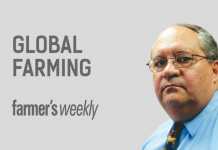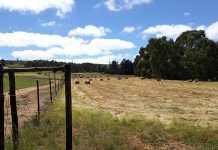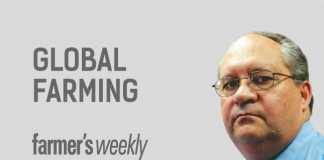The traditional role of agriculture is to put food on consumers’ tables. SA agriculture has managed to do this – at reasonable prices – for many years. This is not true of all countries. After the Second World War, Europe faced serious food shortages. This saw the establishment of the Common Agricultural Policy (CAP) in the then-European Common market, forerunner of the EU. This support plan worked so well that Europe was soon a producer of surplus agricultural products that had to be exported.
Over time, criticism of CAP, especially from ‘donor countries’ such as the UK and Germany, whose contribution to the CAP has been higher than the return from the CAP to their farmers, has resulted in a decrease in total CAP spending.
In reality, though, there has been very little real reform of agricultural subsidies in the EU or other subsidising countries, such as Japan or the US.
Even non-subsidising countries, such as New Zealand, spend huge amounts on agricultural research and development. Studies have shown that this results in many benefits for the population – especially those in lower income groups, who spend a larger percentage of their income on food than the more affluent.
Despite this evidence, South Africa spends a measly 1,7% of total government expenditure on agriculture, compared with 20% on education and 5% on transport. And a large part of this goes toward transformation and aid to emerging farmers.
Unless the contribution to agricultural research and development is increased, commercial agriculture may not be able to ensure food security in the long run.
Biofuels
As relations between the US and the Arab world have deteriorated, so the US has had to rethink its fuel strategy. It recently started subsidising biofuel production, which today accounts for a significant share of the total US maize and soya bean crop. While some are against the use of grain for fuel rather than food, this is highly unlikely to deter the US. Biofuel production has created a win-win situation, with growth in rural areas and lower dependence on Arab oil.
‘Multifunctional’
Not long ago, the EU brought up a new reason for agricultural subsidies – the multifunctional role of agriculture. According to this concept, subsidies to agriculture result in indirect benefits to society, such as maintaining rural infrastructure, protecting the environment and providing employment. For example, many countries support agriculture to benefit their tourism industry; Switzerland pays its farmers to maintain its ‘chocolate box’ rural scenery, with neat, green fields and happily grazing cows.
This approach came under fire, however, as it was seen to justify subsidies to agriculture where this was unncessary. The EU has since dropped the ‘multifunctional’ from its vocabulary, but the concept is nevertheless used extensively. The opposite has happened in South Africa. Our commercial farmers have taken on many functions that are the responsibility of government, such as transport and medical funding.
Job losses in agriculture have caused an influx of people into squatter camps, where the prospects for jobs are non-existent. Recent government decisions on minimum wages indicate that it clearly fails to comprehend the impact of its ill-considered decisions.
In a recent NAMC publication, ‘Surviving the global food jungle’, Prof Marcos Fava Neves lists 13 industries that depend on agriculture for their raw material supplies. These include medicine, cosmetics, plastics, leather, construction, furniture and paper, as well as tourism and environmental protection.
South African agriculture contributes less than 3% to the GDP. However, taking all the linkages into account, the real effect is probably much higher. Despite this, government does not seem to understand the multifunctional role of agriculture. The agriculture budget is at least three times lower than that proposed in the so-called Strategic Plan for SA Agriculture, a joint document signed by government, AgriSA and Nafu.
In the recent sectoral wage determination process, government once again showed its ignorance of the free-market system, pegging wages for farm labourers at a level that will result in significant job losses. A rethink of the role of agriculture is crucial in political circles, or we may end up like some of our northern neighbours – dependent on food aid to survive.
Dr Koos Coetzee is an agricultural economist at the MPO. All opinions expressed are his own and do not reflect MPO policy. Contact Dr Coetzee at [email protected]. Please state ‘Global farming’ in the subject line.



